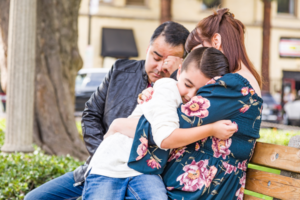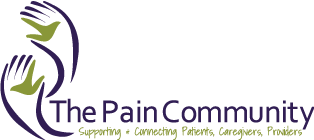by Shalinie Dowlatram
 Losing a loved one to gun violence is devasting and families and friends are given few resources if any to help them endure what lies ahead: Funeral costs, medical bills, fear, anxiety, posttraumatic stress disorder (PTSD), among many other challenges. People with loved ones who were non-fatally injured in a shooting may struggle to provide the mental, emotional, physical, and financial resources to care for their now disabled friend or family member. Gun violence strikes an unknown toll on community members who live in proximity to violence and must listen to an unending news cycle of one shooting after another, while losing their family members, friends, and neighbors.
Losing a loved one to gun violence is devasting and families and friends are given few resources if any to help them endure what lies ahead: Funeral costs, medical bills, fear, anxiety, posttraumatic stress disorder (PTSD), among many other challenges. People with loved ones who were non-fatally injured in a shooting may struggle to provide the mental, emotional, physical, and financial resources to care for their now disabled friend or family member. Gun violence strikes an unknown toll on community members who live in proximity to violence and must listen to an unending news cycle of one shooting after another, while losing their family members, friends, and neighbors.
About 15,000 children lose a parent to gun violence annually,4 while firearm-related injuries are the number one cause of death for children in the United States 5. Children who lose their parents, lose their sole providers and protectors, while parents who lose their children are left with empty bedrooms in their homes and broken hearts in their chests.
Parents who lose a child are likely to experience extreme grief, negative physical health outcomes, and are likely to reduce their use of medical services <sup>6</sup>. Parents who lose a child to gun violence experience traumatic loss and may develop prolonged grief disorder as a result. Feelings of grief typically subside overtime, while prolonged grief is intense and persistent, even as time passes. Prolonged grief disorder is characterized by intense unrelenting grieving and may be accompanied by other symptoms such as, “disbelief, intense emotional pain, feeling of identity confusion, meaninglessness or difficulty engaging in ongoing life.”2 Psychological stress from the traumatic loss of a loved one can also take a toll on physical health.
Children who lose their parents due to gun violence may struggle to achieve educational attainment, may lose their stable home environment, may lack financial support, and may also suffer from traumatic grief.4 Children lack resources and support while they endure the pain of their loss as they are left grieving for one parent while their other remaining caregivers struggle with their own grief as well.1
While studies on the long-term health outcomes of gunshot wound survivors are lacking, studies on health outcomes of family, friends, and community members impacted by gun violence are almost non-existent. However, a 2021 study highlighted the mental health burden of gun violence on children. Children who were exposed to multiple incidences of gun violence 60 days prior to visiting the emergency department had an increased odds of going to the emergency department for mental health services.7 Exposure to neighborhood gun violence is likely a source of mental stress for children; however, further research is required to establish a statistical association between exposure to neighborhood gun violence and mental health related emergency department visits.7 Neighborhood gun violence can make people feel unsafe, stressed, and anxious.
Studying the impact of gun violence on the community and the support systems of people who have experienced gun violence is vital to ensuring proper follow-up care for survivors of shootings and easing the mental health burden on the family and friends of gun violence survivors. Patients with support systems have better health outcomes;3 therefore, it is important to fortify those support systems with resources and mental health services as well. Gun violence has a ripple effect; people who are impacted by gun violence via the loss or injury of a loved one can also experience anxiety, depression, stress, financial hardship, and PTSD.4 Caring for injured loves ones while dealing with the trauma of what happened to them is stressful for family and friends. They care for and offer support to their loved ones while simultaneously working through their own trauma, anxiety, and stress.
References
1 Bergman, A.-S., Axberg, U., & Hanson, E. (2017). When a parent dies – a systematic review of the effects of support programs for parentally bereaved children and their caregivers. BMC Palliative Care, 16(1). https://doi.org/10.1186/s12904-017-0223-y
2 Diagnosis: Center for complicated grief. The Center for Prolonged Grief. (2021, November 9). Retrieved December 2, 2022, from https://complicatedgrief.columbia.edu/professionals/complicated-grief-professionals/diagnosis/
3 Fisher, M. (2020, June 25). Social support systems: Called to care: Johns Hopkins Bayview Medical Center in Baltimore, MD. Social Support Systems | Called to Care | Johns Hopkins Bayview Medical Center in Baltimore, MD. Retrieved November 27, 2022, from https://www.hopkinsmedicine.org/about/community_health/johns-hopkins-bayview/services/called_to_care/social_support_systems.html
4 Landman, K. (2022, June 6). Guns do more than kill. Vox. Retrieved November 27, 2022, from https://www.vox.com/science-and-health/23151542/gun-deaths-firearm-injuries-violence-health-grief-mental-physical
5 Schaechter, J., & Alvarez, P. G. (2016). Growing up – or not – with gun violence. Pediatric Clinics of North America, 63(5), 813–826. https://doi.org/10.1016/j.pcl.2016.06.004
6 Stroebe, M., Schut, H., & Stroebe, W. (2007). Health outcomes of bereavement. The Lancet, 370(9603), 1960–1973. https://doi.org/10.1016/s0140-6736(07)61816-9
7 Vasan, A., Mitchell, H. K., Fein, J. A., Buckler, D. G., Wiebe, D. J., & South, E. C. (2021). Association of Neighborhood Gun Violence with mental health–related pediatric emergency department utilization. JAMA Pediatrics, 175(12), 1244. https://doi.org/10.1001/jamapediatrics.2021.3512
